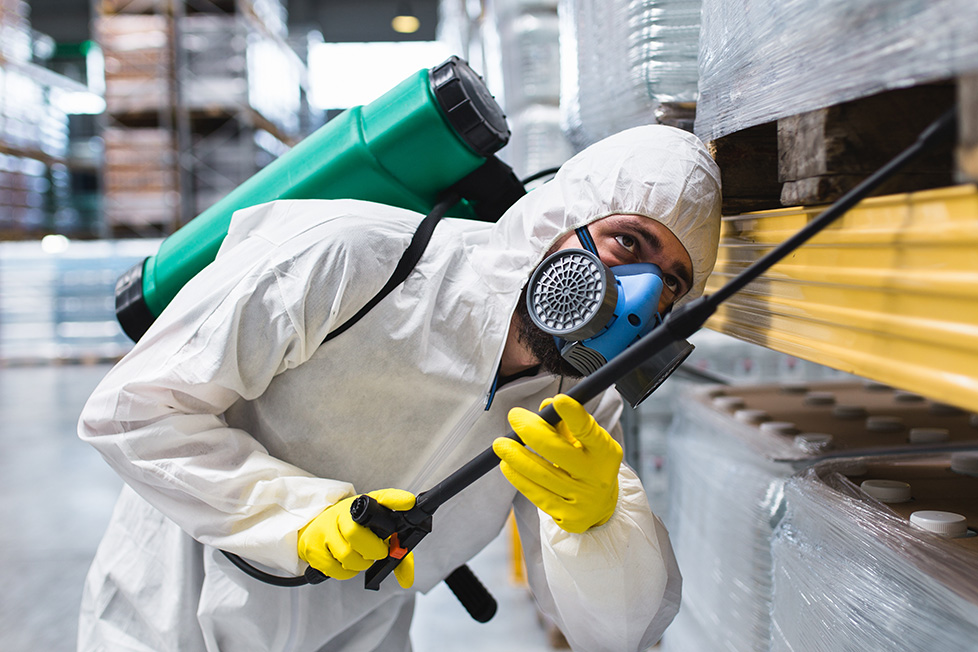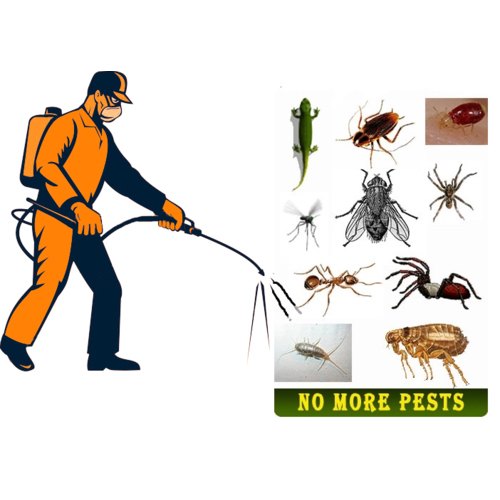Pest Control Chicago LLC: Your Go-To for Reliable Rat Removal Chicago Illinois
Pest Control Chicago LLC: Your Go-To for Reliable Rat Removal Chicago Illinois
Blog Article
Checking Out Different Techniques and Methods for Comprehensive Bug Control in Residential Spaces
The landscape of parasite control in residential spaces has evolved dramatically, necessitating a comprehensive understanding of different approaches that can be utilized for efficient management. Conventional chemical treatments, while effective, are increasingly being matched by environment-friendly options and Integrated Insect Management (IPM) strategies. Homeowners have to take into consideration preventative procedures, such as normal surveillance and exact insect identification, to maintain a healthy and balanced atmosphere. The real challenge exists in striking an equilibrium between efficiency and safety and security-- an exploration that reveals the subtleties of each strategy and its ramifications for sustainable living.
Comprehending Parasite Control Basics
Reliable insect control is crucial for preserving a healthy and balanced and safe living environment. Recognizing the essentials of pest control includes identifying the kinds of bugs that commonly get into property rooms, the potential threats they present, and the importance of precautionary actions. Common home bugs consist of rats, insects, and other unwanted animals that can endanger health, damage building, and trigger health problems.
An important initial step in insect control is determining the certain bugs existing. This can entail evaluating locations such as attic rooms, kitchen areas, and cellars, where parasites are likely to prosper. When identified, it is critical to comprehend their habits, reproducing cycles, and preferred atmospheres, which can inform proper control methods.
Safety nets are essential to effective pest management. These consist of securing entry points, keeping sanitation, and minimizing clutter to get rid of hiding areas. Furthermore, appropriate food storage and waste administration can substantially reduce the allure of a home for pests.

Conventional Chemical Treatments
Among the different parasite control approaches, traditional chemical therapies have long been utilized to resolve infestations in residential spaces. These treatments generally include the application of chemical pesticides made to get rid of parasites such as insects, rodents, and various other undesirable organisms. The effectiveness of these chemicals can differ, depending on the kind of insect, the formulation of the pesticide, and the method of application.
Usual courses of typical chemical therapies include pesticides, herbicides, fungicides, and rodenticides, each tailored to fight certain bugs. Insecticides, for instance, might target roaches, ants, or termites, while rodenticides are especially formulated to regulate rodent populaces. These chemicals are usually available in various kinds, consisting of baits, sprays, and granules, enabling house owners adaptability in application.
Regardless of their performance, typical chemical therapies elevate worries concerning potential poisoning to human beings, animals, and useful microorganisms in the setting. It is vital for property owners to thoroughly comply with application guidelines and safety preventative measures to decrease dangers. Integrated Parasite Management (IPM) methods can enhance these treatments, making certain a more all natural approach to pest control while optimizing efficiency and safety in household setups.
Eco-Friendly Pest Control Options
Green pest control alternatives are acquiring popularity as property owners seek safer and much more lasting alternatives to standard chemical therapies. These approaches prioritize the health of both locals and the environment, reducing the impact of parasite control practices.
One widely embraced environment-friendly approach is the use of natural repellents acquired from vital oils, such as peppermint and citronella. These oils not only deter pests however additionally supply pleasurable fragrances for indoor areas. Diatomaceous planet, a powder made from fossilized algae, acts as an all-natural pesticide by harming the exoskeletons of bugs upon get in touch with, leading to dehydration.
One more efficient strategy includes promoting biodiversity in gardens and yards. Presenting advantageous pests, such as lacewings and ladybugs, can normally control pest populaces (rat removal chicago Illinois). Furthermore, using catches made from naturally degradable materials can help catch and remove pests without causing damage to the ecosystem
Regular maintenance, such as securing entry points and proper hygiene, more improves the performance of green bug control. Related Site House owners can take positive measures to avoid problems, making certain an extra sustainable living setting while efficiently taking care of pest-related concerns.
Integrated Insect Administration Methods
Implementing integrated bug monitoring (IPM) approaches provides a thorough technique to pest control that highlights prevention and long-term remedies. IPM incorporates several techniques, concentrating on recognizing insect habits, life cycles, and eco-friendly dynamics to minimize parasite populaces effectively. This multifaceted method focuses on non-chemical methods, such as organic control, environment adjustment, and social practices, to lower reliance on chemicals.
A foundational element of IPM is checking and determining parasites accurately. When intervention is essential, this includes normal assessments and the establishment of action limits to identify. By recognizing the particular parasites influencing domestic settings, targeted interventions can be utilized, decreasing the likelihood of unneeded pesticide applications.
Another critical element of IPM is educating property owners concerning the significance of sanitation and upkeep practices. By promoting an atmosphere that prevents bug infestations-- such as securing access factors and managing moisture-- residents can dramatically mitigate the danger of bug issues. Furthermore, when chemical controls are deemed necessary, IPM supporters for the use of the least harmful choices to lessen ecological effect. With these strategies, IPM not just addresses present bug issues however also cultivates sustainable techniques that promote lasting bug administration success.
Preventative Actions for House
To ward off possible pest problems, home owners must embrace an aggressive method that stresses preventative procedures. This begins with maintaining a organized and clean space, as clutter and food particles attract insects. Preventative pest control services Chicago. Consistently vacuuming, sweeping, and wiping down surfaces can significantly minimize the danger of infestations
Furthermore, sealing entry factors is critical. Home owners must examine article windows, doors, and structure cracks for spaces that might permit parasites accessibility to the home. Making use of caulk and weather stripping can properly obstruct these entryways.
Correct food storage space is an additional crucial procedure. Keeping food in impermeable containers and without delay tidying up spills or crumbs assists prevent rats and insects.
Furthermore, taking care of exterior environments can avoid bugs from trespassing on domestic rooms. Home owners ought to make certain that drain systems are working well, and landscaping is maintained clean. Trimming original site trees and shrubs far from the residence and removing standing water can further lessen insect environments.

Final Thought
In conclusion, effective insect control in household areas requires a complex approach that incorporates standard chemical treatments with green practices and Integrated Insect Administration techniques. By prioritizing preventative procedures, such as keeping tidiness and securing entrance points, homeowners can considerably minimize bug occurrences. Regular monitoring and precise insect identification further boost management efforts. Inevitably, a well balanced methodology that integrates all-natural repellents and the very least harmful chemicals promotes a risk-free and healthy living environment while dealing with pest-related challenges.
Recognizing the basics of bug control includes recognizing the kinds of parasites that generally get into residential spaces, the potential risks they posture, and the value of preventive procedures.A critical first step in bug control is determining the particular pests existing. Integrated Pest Monitoring (IPM) techniques can complement these treatments, making sure a much more holistic method to pest control while making the most of efficiency and security in residential setups.
Implementing incorporated parasite monitoring (IPM) strategies uses a thorough method to pest control that highlights prevention and long-lasting solutions.In conclusion, effective insect control in household spaces necessitates a diverse method that incorporates conventional chemical therapies with environmentally friendly methods and Integrated Bug Administration approaches.
Report this page